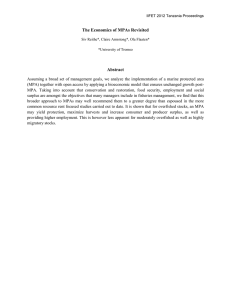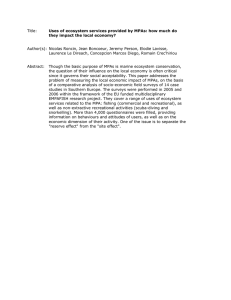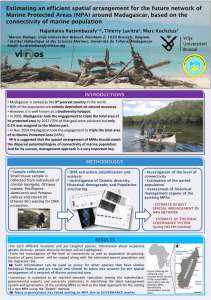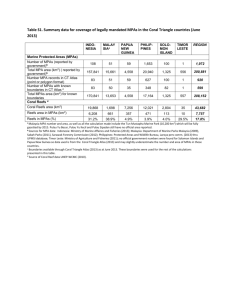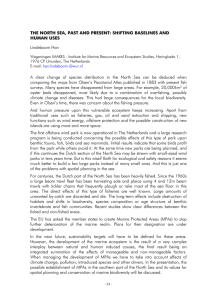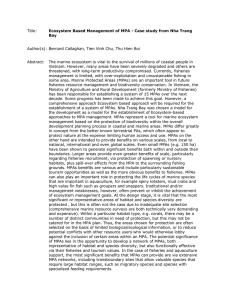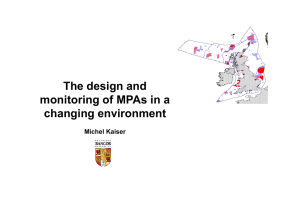THE 10x20 INITIATIVE Conference on Marine Protected Areas: An Urgent Imperative
advertisement
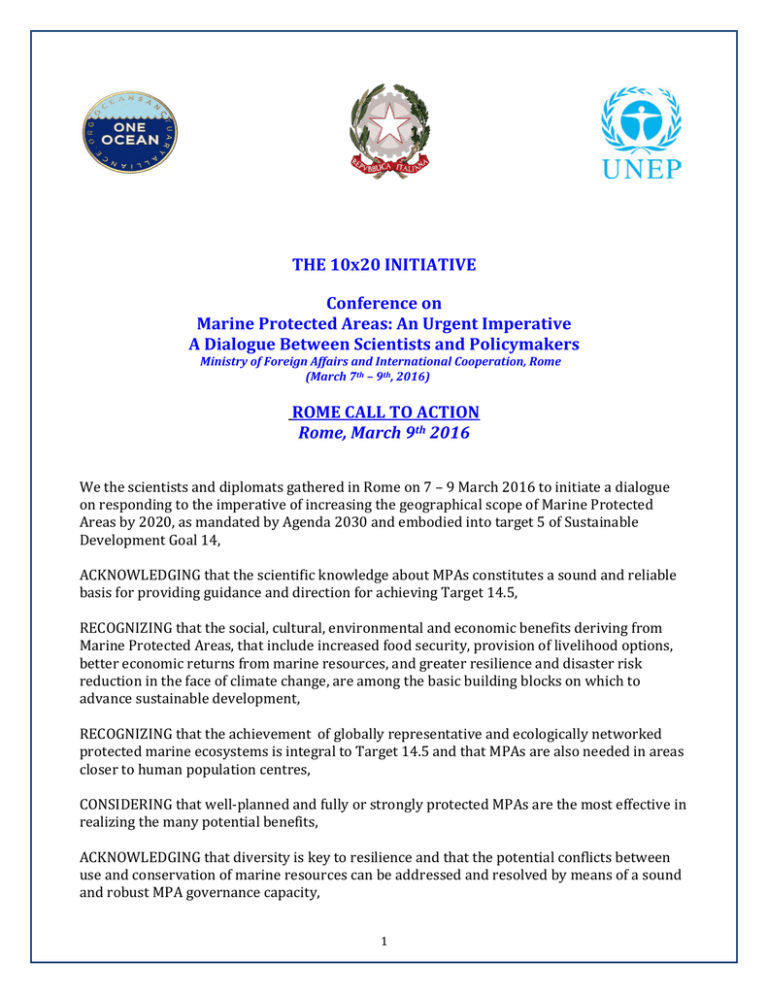
THE 10x20 INITIATIVE Conference on Marine Protected Areas: An Urgent Imperative A Dialogue Between Scientists and Policymakers Ministry of Foreign Affairs and International Cooperation, Rome (March 7th – 9th, 2016) ROME CALL TO ACTION Rome, March 9th 2016 We the scientists and diplomats gathered in Rome on 7 – 9 March 2016 to initiate a dialogue on responding to the imperative of increasing the geographical scope of Marine Protected Areas by 2020, as mandated by Agenda 2030 and embodied into target 5 of Sustainable Development Goal 14, ACKNOWLEDGING that the scientific knowledge about MPAs constitutes a sound and reliable basis for providing guidance and direction for achieving Target 14.5, RECOGNIZING that the social, cultural, environmental and economic benefits deriving from Marine Protected Areas, that include increased food security, provision of livelihood options, better economic returns from marine resources, and greater resilience and disaster risk reduction in the face of climate change, are among the basic building blocks on which to advance sustainable development, RECOGNIZING that the achievement of globally representative and ecologically networked protected marine ecosystems is integral to Target 14.5 and that MPAs are also needed in areas closer to human population centres, CONSIDERING that well-planned and fully or strongly protected MPAs are the most effective in realizing the many potential benefits, ACKNOWLEDGING that diversity is key to resilience and that the potential conflicts between use and conservation of marine resources can be addressed and resolved by means of a sound and robust MPA governance capacity, 1 ACKNOWLEDGING that the achievement of SDG Target 14.5 is a process that should be aligned and coordinated with existing legal frameworks contained in MEAs, such as CBD (including Aichi Biodiversity Strategy 2011-2020, Target 11), the SAMOA Pathway and the new Paris Agreement on Climate, as well as ongoing intergovernmental discussions regarding the development of a legally binding instrument under the United Nations Convention on the Law of the Sea on the conservation and sustainable use of marine biological diversity of areas beyond national jurisdiction, and other international initiatives such as the Micronesia Challenge, the Coral Triangle and the Caribbean Challenge Initiatives and the Parties to the Nauru Agreement. We have taken account of the foregoing aspects and issue the following CALL to ACTION 1. Incorporate the establishment of MPAs into the national strategies that are being adopted to implement and localize the 2030 Agenda for Sustainable Development; 2. Make use of the best available science as well as institutional and operational experience to establish, maintain, and effectively manage MPAs1; 3. Consider that Target 14.5 represents an important waypoint rather than an endpoint in our quest towards the implementation of Sustainable Development Goal 14 and the achievement of healthy, resilient and productive oceans; 4. Map and describe areas where MPAs are especially needed and prioritize protection of vulnerable species and habitats as an initial measure in view of the year 2020 target, giving the highest consideration to both biodiversity distribution and ecosystem functioning ; 5. Promote and help develop MPA governance frameworks that are appropriate to the specific MPA context and draw in an integrated manner on economic, knowledge, legal and participative incentives; 6. Devise approaches for sustainability of MPAs that can best ensure the long term benefits of MPAs and their fair and equitable distribution among all sectors; 7. Devise and help develop approaches to consistently involve all stakeholders, including local communities in a just and equitable manner in the assessment, designation and management of MPAs to improve ownership, benefit from traditional knowledge and practices, and stimulate the creation of livelihoods, thereby increasing the likelihood of success and sustainability; 8. Increase focus on the economic issues related to MPAs and help devise and develop updated cost-benefit analysis that take into account the existing gap between the short term nature of investments and the long term character of MPA benefits; 1 Including the Rome 10x20 Conference Scientists’ Consensus statement 2 9. Support resource mobilization activities from all sources with a view to promoting and accelerating investment in the establishment and maintenance of MPAs, as part of the international effort towards the achievement of sustainable development; 10. Help countries with capacity building and identification of resource opportunities. IN FURTHERANCE OF THESE AIMS WE CALL ON 11. The international scientific community to continue research on Ocean issues on an urgent priority basis; 12. The group of scientists and other MPA experts gathered in Rome to offer their assistance in the implementation of Target 5 of Sustainable Development Goal 14 both globally and in specific regions, including the application of their recommendations provided in the Rome Scientists’ Consensus; 13. The Steering Committee of the 10x20 Initiative to: (a) intensify its advocacy and support role to bring the present Call to Action to the attention of the international community; (b) devise appropriate and effective follow-up activities to the CALL to ACTION; (c) promote further dialogue between the scientific community and policy-makers including calling upon and engaging the group of MPA experts gathered in Rome; (d) develop a “tool-box” that will assist in the identification, design, finance and governance of appropriate MPAs and MPA networks in a multiplicity of contexts, including transitional challenges for the establishment of MPAs. 14. The Steering Committee of the 10x20 Initiative to bring to the attention of Member States, including through the High Level Political Forum, the present CALL to ACTION and to convey to them the request to include into the Agenda of the forthcoming international conference on the Oceans – Fiji, 2017 – consideration of progress made towards the achievement of Target 14.5. * * * 3
